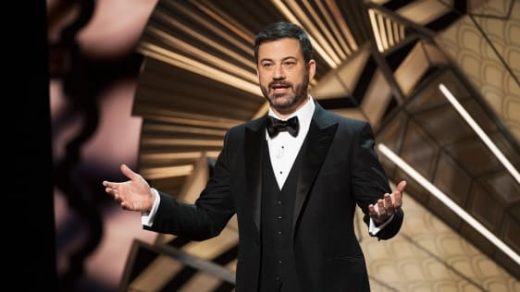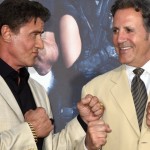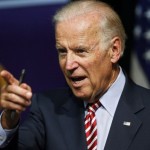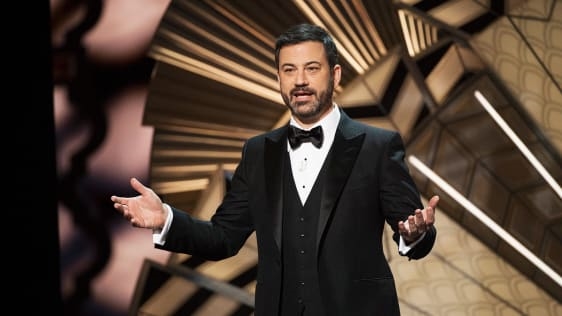Jimmy Kimmel Brings His Activism To The Oscars In Excellent Opening Monologue
Although Jimmy Kimmel is hosting the Oscars for a second year in a row, a different man is onstage than last time.
Over the past year, Kimmel has gone through a stunning metamorphosis. His late-night talk show once hewed closer to the Jimmy Fallon style of hosting, the party that never dulls. After a personal health crisis, however, keeping the party going was no longer the only priority. Kimmel’s newborn son almost passed away from a heart condition, and even though the host was able to afford the healthcare required to save him, he started to care more about what happens to the people who wouldn’t be able to do so. Since then, Kimmel has taken up one cause after another, most recently using his platform to raise awareness for sensible gun control.
If there was any doubt whether Kimmel would bring his newfound Voice of America’s Conscience status to his duty of hosting the Oscars, he squashed it immediately, right in the opening monologue.
“This is a night for positive change,” he said, a few minutes into a speech that a) addressed last year’s Best Picture flub, b) established an upbeat tone for the evening, and c) shouted out a number of activist movements that have been in the national conversation the last few months, namely #MeToo, Time’s Up, and Never Again.
Amazingly, Kimmel proved that social consciousness need not be a dour thing. He spun the disparity between Mark Wahlberg’s and Michelle Williams’s paychecks for All the Money in the World reshoots into a joke about agents. His most biting joke arrived after he made some banter with Timothée Chalamet, star of Call Me By Your Name, the LGBT-friendly romantic coming-of-age movie nominated for Best Picture. After noting the film’s so-so box office, Kimmel admitted, “We don’t make films like Call Me By Your Name to make money . . . We make them to upset Mike Pence.”
It’s a perfect distillation of Kimmel’s skill at injecting comedy into social issues, and a bravura introduction to a promising Oscars broadcast.
Watch the full monologue below.
(22)














